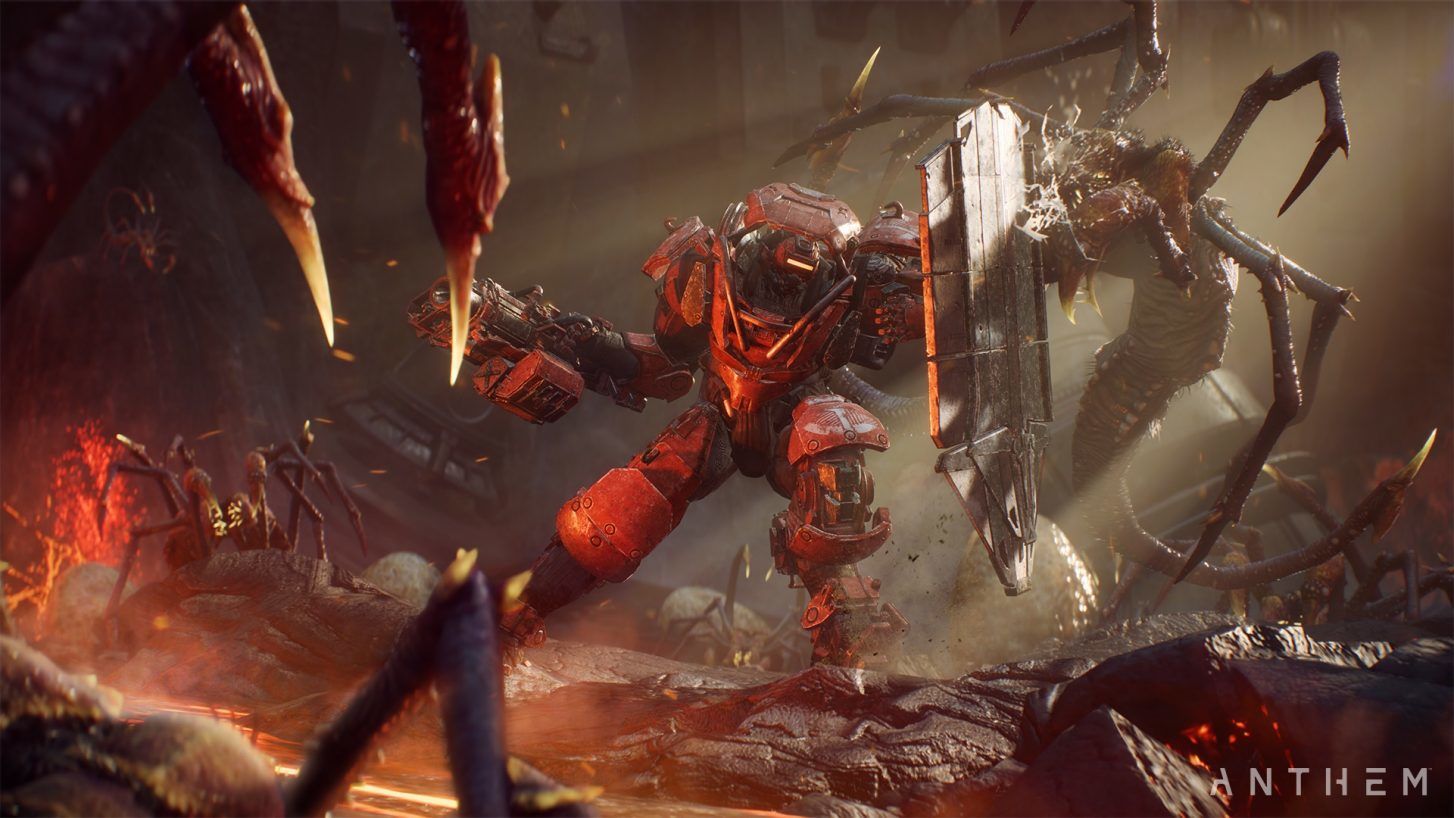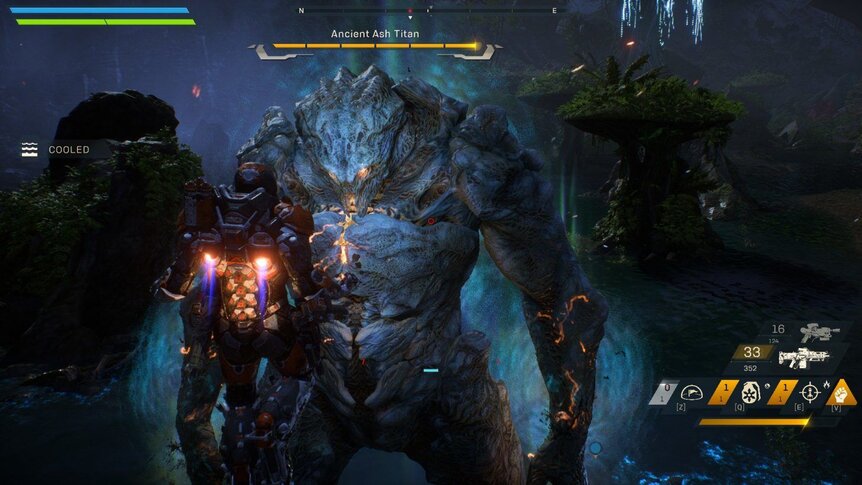Create a free profile to get unlimited access to exclusive videos, sweepstakes, and more!
Anthem may look different, but it's pure BioWare

Anthem's most important feature is a jetpack. Nothing else about the action role-playing game sticks out as much as the moment at the beginning of every mission when the main character, dressed in a robot suit, clomps to the edge of a cliff like Iron Man, leaps off the edge, and, just before smacking into the jungle floor rushing up to meet them, ignites a pair of high-tech thrusters to swoop upward in defiance of gravity.
This action, repeated over and over again, forms delightful bookends to the far less exciting material between every thrilling flight. Shooting waves of insectile enemies and enemy soldiers; talking to the population of the city returned to after each mission; equipping and buying new guns and armor — none of this provides anything as remarkable as the tactile pleasure of jumping and flying.
Those who have followed Anthem's studio, the storied role-playing maker BioWare, may find this surprising. BioWare is known far less for the precision of its games' action than slower, more intimate moments of conversation and dialogue-based character building. Its prior work — Baldur's Gate, Mass Effect, Dragon Age — is built to service the process of creating a player-customized protagonist whose personality (and combat skills) are shaped by the way they talk to others and the decisions they make when faced with variable plot points. A typical BioWare game allows the audience to start a relationship with another character, act like a hero or villain, and affect the direction of the story with nearly godlike power.
In Anthem, players mainly just shoot stuff. There are no romances to experience or character traits to influence (aside from a few binary dialogue choices). The plot is strictly defined and only very minor side-stories can be influenced in small ways. On its surface, it looks and plays like a huge departure from the role-playing legacy BioWare's established for itself over decades of work.
Soon enough, though, Anthem reveals itself to have more in common with these older games than it initially seems. Its plot starts messy — the protagonist, a robot-piloting pseudo mercenary who belongs to the hilariously named "Freelancer" order finds themselves working to stop a rival pilot from claiming divine power — but eventually coalesces into a perfectly serviceable fantasy story. Those willing to read through menus filled with explanatory backstory and glossary entries (Anthem loves its invented nouns so it takes a while to learn what, exactly, a "Scar," "Urgoth," or "Shaper" is) or spend the time talking to the hub city's many characters will discover a story as inventive as any of BioWare's past work.
The plot may not be as sprawling as a Mass Effect or Dragon Age, but its fantasy world, where sophisticated technology mixes with the worship of powerful ancient ruins, is as imaginative as anything written for either of those series. BioWare's outsized characters are also present in the city's population and the Freelancer protagonist's crew, only they don't come with branching dialogue wheels and flirting options anymore.
With the core of the studio's writing approach intact, Anthem replaces the player's ability to mold the story in their image with a greater emphasis on action. The gunfights and gear customization come across like a rethought version of Mass Effect's weighty, third-person sci-fi battles, but the conceit of a robot-piloting protagonist adds greater dimension by letting the player plummet off skyscraper-sized cliffs and swoop into battle like a well-armed hawk. Slower-paced exploration and lengthy dialogue scenes have been replaced with a brisker, action-oriented style of design. The trade-off generally feels fair enough — and like a smart offshoot from BioWare's prior games.
This isn't to say Anthem is an unqualified success. Its missions are repetitive and the main thrust of its plot fairly dull. It's also a game whose story is too dependent on the player's willingness to spend too much time reading through an eye-melting volume of menu-based codices and trekking around the in-game city to seek out easily-missed conversations. Rather than explain itself outright, Anthem commits the common video game sin of treating its narrative like an optional collectible, all but ensuring that only the most curious players will do the extra legwork required to find what's most compelling in its disjointed story. Like so many other games, it seems to have been designed with the fear that providing too much narrative detail upfront would take away from getting to the action presumed to draw in audiences in the first place.
Still, these kinds of problems aren't due to approach. They're a failure of execution. The move from strict role-playing to a more frenetic experience isn't a poor idea from the get-go. Anthem isn't a complete departure from its creators past work, only a new interpretation of an older design philosophy. There's nothing wrong with this action-heavy take on the role-playing game in theory, but in practice, it's too unevenly delivered to capitalize on a good concept. Anthem isn't a bad direction for BioWare as a whole; it's just a mediocre game in the mold of so many other mediocre mainstream video games.
















